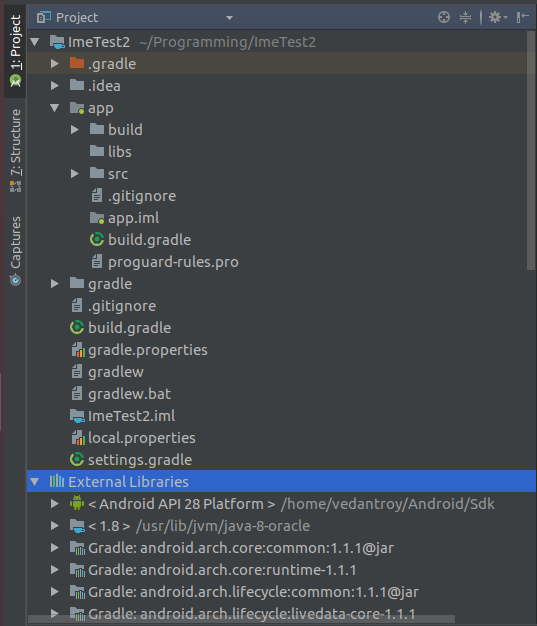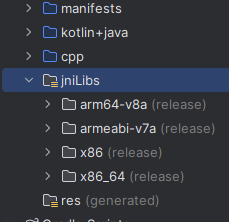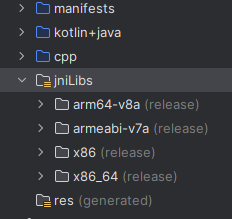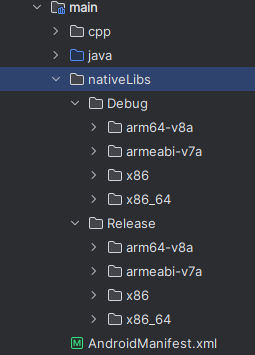I am trying to compile the following code:
https://android.googlesource.com/platform/packages/inputmethods/LatinIME/+/master
into an apk file.
To do this, I created a default Android project with an empty activity. Afterwards, I added the relevant java files from the repository to my project and made some modifications. I also added the appropriate xml/image resources to my project.
Now, I need to add the JNI/native libraries to my project. https://android.googlesource.com/platform/packages/inputmethods/LatinIME/+/master/native/
However, I don't know where to place them. The only references I could find were
1] How to add JNI Libraries in android studio project? But, my project structure looks different from the screenshot.
and
2] Where to create jni folder in Android Studio which is old/outdated/lacks detail.
Here is my project structure:




